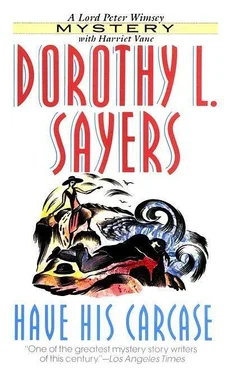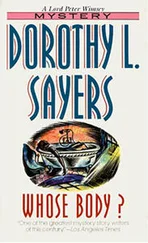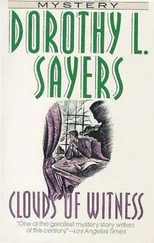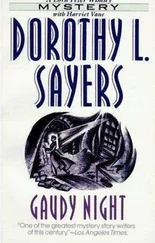‘Yes, but said Umpelty.
‘I know, I know — bear with me. I know the plan went all wrong, but I want you to realise what it was meant to be. Suppose all this had worked properly — what would have happened? The body would have been left on the rock at about noon, with the razor lying below it. By 12–30, the
murderer was well away, nearly at Darley. By one o’clock, he was at the. Feathers, eating and drinking, with a witness to swear that he had spent the whole morning in Wilvercombe. If the body was found before the tide turned, there would be no footprints, other than those of the corpse, and suicide would probably be presumed without a second thought — especially when the razor turned up. If the body was not found till: later, the footprints would be less important, but the medical evidence would probably establish the time of death, and then the alibi would come in.
‘It sounds a very risky plan, but it sounds riskier than it was. Its boldness was its strength. From the Flat-Iron and for a mile or more before you come to it the coast-road is visible from the shore. He could keep an eye on it and bide his time. If it looked dangerous, he could put it off to a more convenient season. Actually, the only real risk he ran was of being seen at the very moment of the murder and chased by car along the, coast. Otherwise, even if it turned out later that a horseman had been, seen on the shore about noon, who could prove who the horseman was? It could certainly not be Mr Haviland Martin, who had no connection with anybody and had spent the morning musically in Wilvercombe. And in any case, how many people did pass along that road? What were the odds that the body would be discovered under a few hours? Or that the death would be supposed to be anything except suicide?’
‘What are the odds now that it wasn’t suicide?’ said Inspector. Umpelty. ‘By your own showing it can’t have been anything else. But I see what you mean, my lord. You mean that all this plan was made out, and then, when Weldon got along to the Flat-Iron, something made him, change his mind.’ How’s this? When Alexis sees his Rider from the Sea, he recognises Weldon and asks him to explain, Weldon tells him how they’ve made a fool of him and somehow gets him to promise to chuck Mrs Weldon. Maybe he threatens him with the razor, Then Weldon goes away and Alexis is so disappointed that, after thinking it over a bit, he cuts his throat’
‘Weldon having thoughtfully armed him with the razor for that purpose?’
‘Well, yes — I suppose so.’
‘And what did the bay mare see?’ asked Harriet.
‘Ghosts,’ replied Inspector Umpelty, with a snort of in credulity. ‘Anyhow, you can’t put horses in the witness-box.’
‘Weldon made a mistake afterwards in coming to Wilvercombe,’ went on Wimsey. ‘With that identification mark on his arm, he should have kept away, mother or no mother. But he had to poke his nose in and see what was happening. and Morecambe — well, his possible appearance as a witness was foreseen, of course. I wonder, though, if he was really wise to answer that advertisement of ours. I suppose it was the best thing he could do but he ought to have smelt the trap, I think. But my private impression is that he wanted to keep an eye on Weldon, who was blundering about all over the place.’
‘Excuse me, my lord,’ said Inspector Umpelty, ‘but we’ve wasted a good hour now speculating about what these people might have done or meant to do. That’s very interesting to you, no doubt, but meanwhile we’re no nearer to knowing what they did do, and here’s three people in prison for doing something they can’t have done. If Alexis cut his own throat, we’ve either got to release these people with apologies, or get up a case against them for conspiring to procure by menaces or something. If some accomplice of theirs killed him, we’ve got to find that accomplice. In either case, I mustn’t waste any more time about it. ‘I only wish I’d never touched the bleeding case.’
But you’re so hasty, Inspector,’ bleated Wimsey. ‘I only said the plan went wrong; I never said they didn’t carry it out.’
Inspector Umpelty looked sadly at Wimsey, and his lips silently formed the word ‘loopy’. But aloud he merely observed:
‘Well, my lord, whatever they did, they didn’t murder Alexis at, two o’clock, because they weren’t there to do it; and they didn’t murder him at twelve o’clock, because he didn’t die till two. Those are facts, aren’t they?’
‘No?’
‘No.’
‘You mean, one or other of them was there at two o’clock?’ ‘No’
‘You mean, they did murder Alexis at twelve o’clock?’ ‘Yes’
‘By cutting his throat?’
‘Yes.’
‘Right through?’
‘Right through’
‘Then how is it he didn’t die till two o’clock?’
‘We have no evidence at all,’ said Wimsey, ’as to the time Alexis died.’
Chapter XXXIV. The Evidence Of What Did Happen
‘Take thou this flower to strew upon his grave,
A lily’ of the valley; it bears bells,
For even the plants, it seems, must have their fool, —
So universal is the spirit of folly;
And whisper, to the nettles of his grave,’
“King Death hath asses’ ears.”“
— Death’s Jest-Book
Wednesday, 8 July
‘Do you mean to say,’ demanded Inspector Umpelty, with slow indignation, ‘that the young lady finds herself mistaken all this time?’
Harriet shook her head, and Wimsey said, ‘NO.’
‘Well, my lord, I don’t think you can. go against the doctor. I’ve asked other doctors about it, and they say there’s no doubt about it.’
‘You didn’t tell them the whole of the facts,’ said Wimsey. ‘I don’t blame you,’ he added, kindly, ‘I’ve only just thought of the rest of the facts myself. Something you said about blood put it in my head, Harriet. Suppose we put down a few things we know about this supposed heir of the Romanovs.’
1. He is known to have been very ill as a child, through being knocked down in the playground.
2. At the age of twenty-one he wore a beard, and had never used a razor. He was also
3. Extraordinarily timid about using sharp weapons or visiting the dentist.
4. Moreover, he had had at least one molar crowned the last resort to avoid extraction.
5. On Thursday 18th, when scrambling over rocks, he wore gloves.
6. Periodic pains in the joints, caused him acute suffering.
7. He used antipyrin to relieve this condition.
8. In no circumstances would he see a doctor, though he anticipated that the trouble would eventually cripple him.
9. Lack of the usual post-mortem stains were remarked on at the inquest.
10. Inquest also established that the great vessels were almost completely drained of blood.
11. And, finally, one may inherit other things besides Imperial crowns through the female line.
Harriet and the Inspector stared at this for a moment or two. Then Harriet laughed:
‘Of course!’ she said. ‘I thought, your style was a little laboured in places! But as an impromptu effort it’s creditable.’
‘I don’t see what you get from all that,’ said Umpelty. And then, suspiciously: ‘Is it a joke? Is it another of these ciphers?’ He snatched up the paper and ran a large thumb down the lines, ‘Here!’ he said, ‘what are you playing at? Is it a riddle?’
‘No, it’s the answer,’ said Harriet. ‘You’re right, Peter, you’re right you must be. It would explain such a lot. Only I didn’t know about antipyrin.’
‘I’m almost sure that is right; I remember reading about it somewhere.’
‘Did it come through the Romanovs?’
Читать дальше












